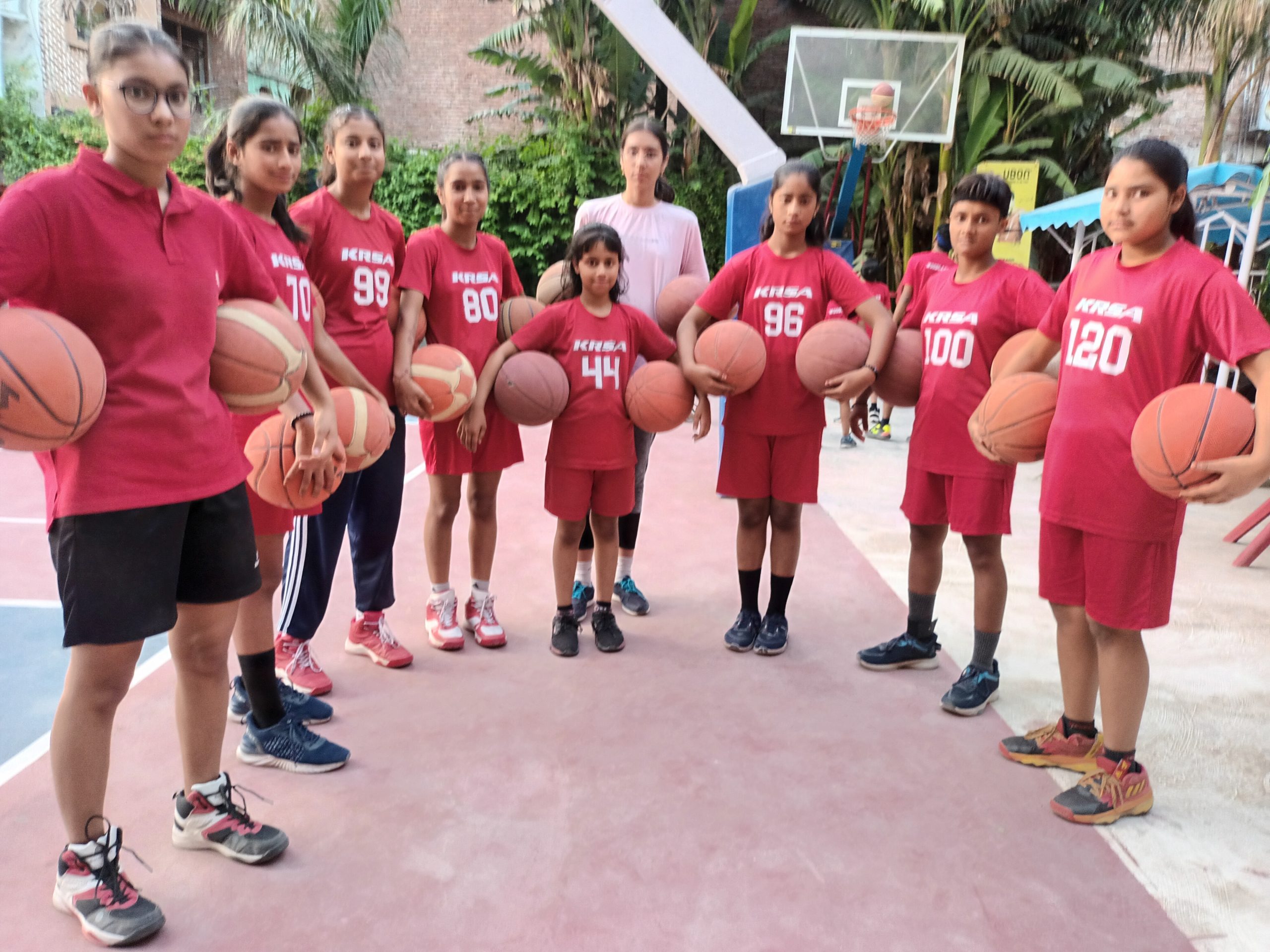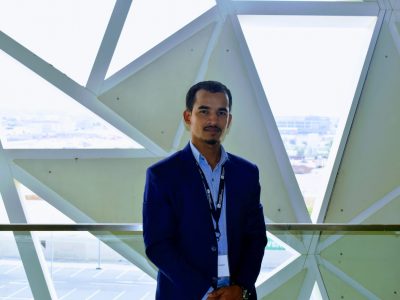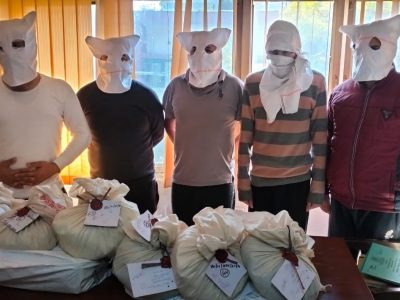Due to the Coronavirus pandemic: Low-cost private schools and Montessori schools struggle to keep afloat having to revamp their operations to suit the online mode of learning
Chandrakant Singh runs Ideal Radiant Public School, a low-cost middle school in Delhi’s Uttam Nagar. He started this school 20 years ago as an educator with a vision to take education to every household, especially those who cannot afford to send their children to high-end schools.
Singh believes that education is the only means to build a morally sound world and bring up individuals who work for collective welfare. He spent the past two decades translating his dream into reality. With minimal fees of Rs 700-1,200, the school caters to the most deprived sections of society. It completely depends on the fees to pay rent and the salary of its staff.
However, since the lockdown was announced in March, low-cost private schools have hit a roadblock.
“We started with online classes but 10 percent of students do not have a smartphone, while 50 percent have only one smartphone which their parents take to work,” Singh said. “It’s been a difficult process to reach them. Most of the parents of the children who come to our school work as daily wagers or labourers. They have been out of work and hence, have been unable to pay the fees.”
The school offered a concession for March, April and May. “But for June, we have only received the fees of 54 students. I haven’t been able to pay the salaries of the teachers. They are working out of goodwill. The landlord has been kind and has agreed to be paid at a later date,” Singh said.
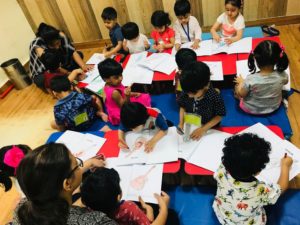
Singh is also a member of the Delhi Private Schools’ Association. He has written to the chief minister multiple times to highlight the issues faced by low-cost budget schools like his, but received no response.
“They do a lot of publicity for having done revolutionary work in the education sector, but the reality is different,” he said. “They were praising their good results in Classes 10 and 12, but about 90 percent of these children are those who migrated from these low-cost private schools.”
Delhi has over 3,000 private schools which cater to low income groups. Why do these parents prefer these schools over government ones?
Singh said, “Small private schools like ours remain accountable to the parents and students. I am always available to discuss even little issues with parents.” His school has regular parent-teacher meetings, and tied up with a private company to develop students’ HR skills.
“Government schools offer free education, mid-day meals, uniform, etc., but even after this, the government has not been able to win the trust of people from the deprived sections of society,” he claimed. “And that is the reason why a large section of school-going children in Delhi study in budget schools like ours.”
An RTI activist, Singh alleged that the RTIs he had filed revealed that although the government claims to provide free education, “extra expenses” that students pay works out to around Rs 10,000 per year — making them no cheaper than budget schools.
Before the lockdown, Ideal Radiant Public School had around 800 students. Singh said he’ll only know how many have since dropped out once the school reopens, but only 500 children have bought books for this year.
On April 15, the Delhi government issued a notice to all private schools, directing them to mandatorily offer concessions for all charges other than the tuition fees. However, for budget schools like Singh’s, the total fee only includes the tuition fees and annual charges.
“I started this school because I believe that only an educated individual can be an asset to society,” Singh said. “Education enlightens. I wanted to bring quality education to all those who couldn’t afford it. I have never dismissed any student who has been unable to pay the fee. But now, we are in great trouble.”
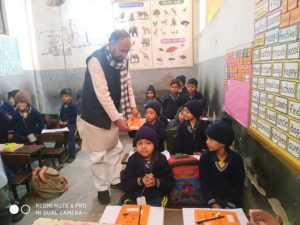
‘Schools like us are in dire straits’
It’s not just schools in Delhi that are struggling. Abhilasha Yogi is the director of Sangam School, a budget school in a village in rural Haryana’s Nuh district. The school was started 35 years ago with the vision to extend quality education to rural India. Villagers donated land to start the school, and Yogi has been associated with it since its inception.
“We used to get donations from a foreign organisation but it shut down in 2014,” she said. “Earlier, we used to charge almost a negligible amount from the children. After we stopped receiving donations, we were solely dependent on the fee to run our operations.”
Sangam charges about Rs 600-800 per month as fees and the school had around 260 students before the lockdown. Since then, a lot of its students have been unable to pay, and Yogi herself hasn’t been able to pay staff members their salaries. “The students come from low income groups,” Yogi explained. “Their parents work as labourers and vendors and most of them have been out of work.”
Online classes haven’t helped, she added, since less than 50 percent have been able to attend. “Most of them do not even have access to smartphones. Many have even dropped out of school and I fear for them.” Students who drop out invariably join one of the government schools in the village, which Yogi said are “in a deplorable state”.
Once the lockdown was announced in March, states like Tamil Nadu and Maharashtra asked schools to refrain from collecting fees. At the same time, the Maharashtra government warned schools of strict action if they withheld the salaries of their staff.

But a recent survey the impact of Covid on low-income schools suggested that over 50 percent of school owners surveyed had large amounts of fees uncollected, and less than 20 percent of teachers in private schools received their salaries after March. The survey, conducted by the Central Square Foundation, also noted that many families went back to their hometown, and might not re-enroll their children in these schools.
Most private schools in India are low-income schools, with little financial capital to fall back on in times of crisis. Over 70 percent of students who study in private schools pay less than Rs 1,000 per month.
Central Square Foundation’s private schools leadership head, Rahul Ahluwalia, said, “We do not realise that a majority of students go to these low cost private schools. A lot of people continue to prefer these schools over government schools for quality education. Governments and other stakeholders need to step up to help them in this time of crisis.”
Mohammad Shafi, the founder of Hyderabad’s Monarch High School, told Newslaundry he’s never experienced anything like what he’s seeing now. He established Monarch in 1999, hoping to bring education to marginalised sections. The average school fee per month is Rs 900.
“We have been trying to reach out to the government and other stakeholders to help us. Schools like us are in dire straits,” he said. “We have somehow stalled the payment of rent by convincing the landlord, but for how long? The parents of the children are out of work and are in no state to pay the fees. I paid half the salaries to the staff through my personal account. It’s difficult to impart education online when so many students do not even own a smartphone.”
‘We are stuck on all sides’
Apart from budget schools, Montessori schools are also struggling to stay afloat.
Montesssori schools, specifically pre-schools, usually teach students aged three to five, using hands-on activities and self-led methods. Since the pandemic hit India, many schools had to shut down or move their operations online, though this hasn’t really worked for several.
Sujata Sunderesan, the principal of MMI preschool in Delhi’s Greater Kailash, explained the impact of the lockdown on her school.
“Most of these children stay with us for two years and then they move to formal schools. Most admissions happen in March-April,” she said. “In March, our previous batch had already sought admissions in formal schools; 150 out of 180 children moved to formal schools. New admissions were supposed to happen in March but since the lockdown was announced, the turnout was greatly affected. We now have only about 50 children with us.”
The school charges about Rs 1 lakh per student per year. Sundaresan has found it difficult to pay salaries and rent since the lockdown. She also had to completely revamp her learning model to suit the digital mode of learning.
“Even the children we have with us have not paid the fees. The parents say that we are not taking online classes to be asking for fees. But how can we take online classes with such small kids?” she said. “We have been sending the curriculum to the parents to assist them in the child’s learning, but we can’t do anything beyond that. Even when we do activities with the kids online, the parents observe and interrupt. We are stuck from all sides.”
Sundaresan added that she was forced to send some teachers on leave without pay. For the teachers remaining, interacting with children on Zoom calls is very new.
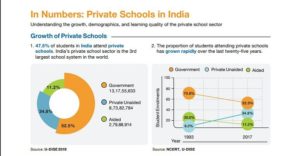
“During the summer vacation, we sat down and overhauled the curriculum to suit the online mode of learning,” she said. “We have been working 24/7 to reinvent ourselves and ensure that the school doesn’t stop functioning. A lot of blood and sweat has gone into building this school for the last 15 years.”
Mansi Aggarwal, the director of Scottish Early Years, a Montessori pre-school in East Delhi, agreed that business has been severely affected after the lockdown. Less than 10-20 percent of her existing students paid fees, she said, while very few enrolled in the new session. Like Sujata, Aggarwal had to send some teachers on leave without pay.
“We have mostly been paying our support staff, but the teachers have been cooperative and have stuck with us. We have moved our operations online but we are trying to limit the screen time,” she said. “The teachers are finding it difficult to capture the attention of such small kids via video conferencing but we have devised a new curriculum to facilitate learning. We also had to start with evening classes for children of working parents, so we are completely revamping the way we operate.”
Aggarwal said that after the government order was issued, the school had to let go of a “major part of the revenue since we could only collect the tuition fee”. But expenses haven’t changed. “Being a commercial property, we get the minimum electricity and water bill every month. We had to ask the landlord to give us more time to pay our dues.”
www.newslaundry.com
(Cover: A regular day at Ideal Radiant Public School before the lockdown)



